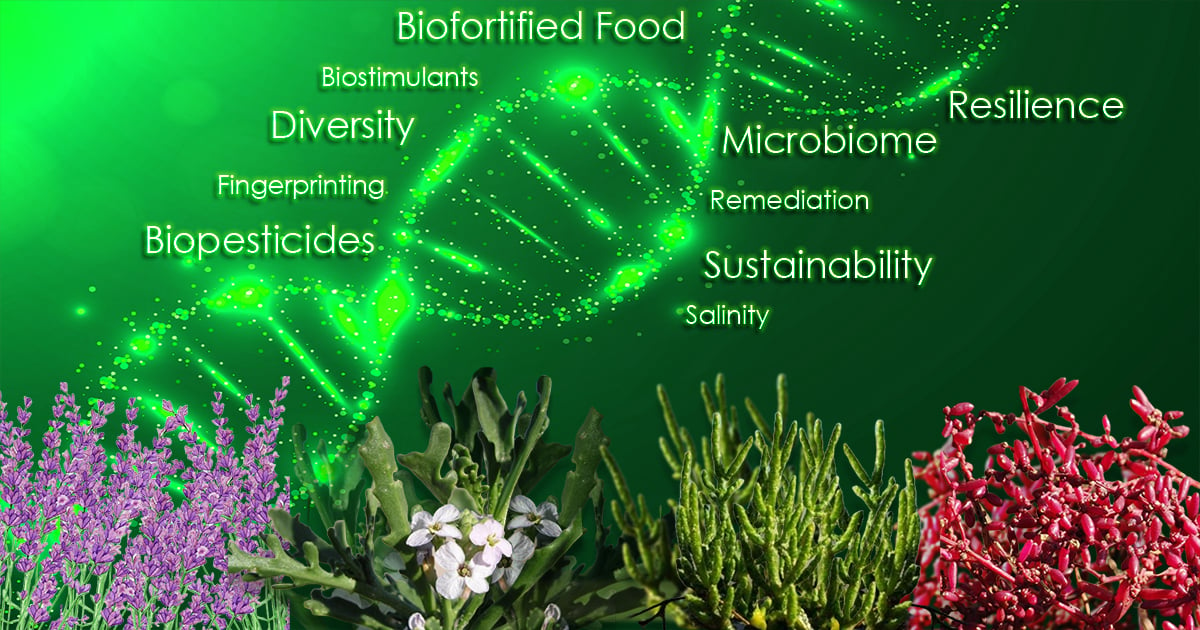Agro-Environmental Sustainable Exploitation of Halophyte, Medicinal and Aromatic Species from Marginal Areas
A special issue of Agronomy (ISSN 2073-4395). This special issue belongs to the section "Farming Sustainability".
Deadline for manuscript submissions: 31 October 2024 | Viewed by 1610

Special Issue Editors
Interests: plant breeding, crop genetics, tolerance to abiotic and biotic stresses; molecular markers; genetic maps; in vitro tissue culture
Interests: abiotic stresses, halophytes, plant physiology, reactive oxygen species, salt stress
Special Issues, Collections and Topics in MDPI journals
Special Issue Information
Dear Colleagues,
Crop scientists are coping with the challenge of adapting agricultural systems to low-input requirements, in addition to ensuring high productivity, quality, and food security in an ongoingly changing climate. Traditional crops are severely affected by environmental changes, causing yield and quality losses, whereas most plant species from marginal areas can face adverse conditions, ensuring productivity and supplying a wide range of applications such as animal feed or traditional/gourmet/functional foods. This SI aims at collecting the most valuable research on the exploitation of spontaneous species and landraces from marginal areas, including medicinal, aromatic, and halophyte plants. We welcome reviews and research papers on the following topics: micropropagation, biodiversity, the fingerprinting of genetic resources, the molecular basis of trait adaptation to stress, soil–microbe–plant interactions for reductions in chemical fertilizers input, the evaluation of the antimicrobial/antifungal activity of medicinal and halophyte plant extracts, the production of low-environmental-impact bio-stimulants and bio-pesticides for plant growth promotion and sustainable pathogen control, the nutritional characterization of marginal species and their use in fortified healthier foods for the valorization of local unexploited resources, and traditional productions, sustainable nature-based solutions for soil/water management and remediation in marginal areas.
Dr. Angelica Giancaspro
Dr. Pedro García-Caparrós
Guest Editors
Manuscript Submission Information
Manuscripts should be submitted online at www.mdpi.com by registering and logging in to this website. Once you are registered, click here to go to the submission form. Manuscripts can be submitted until the deadline. All submissions that pass pre-check are peer-reviewed. Accepted papers will be published continuously in the journal (as soon as accepted) and will be listed together on the special issue website. Research articles, review articles as well as short communications are invited. For planned papers, a title and short abstract (about 100 words) can be sent to the Editorial Office for announcement on this website.
Submitted manuscripts should not have been published previously, nor be under consideration for publication elsewhere (except conference proceedings papers). All manuscripts are thoroughly refereed through a single-blind peer-review process. A guide for authors and other relevant information for submission of manuscripts is available on the Instructions for Authors page. Agronomy is an international peer-reviewed open access monthly journal published by MDPI.
Please visit the Instructions for Authors page before submitting a manuscript. The Article Processing Charge (APC) for publication in this open access journal is 2600 CHF (Swiss Francs). Submitted papers should be well formatted and use good English. Authors may use MDPI's English editing service prior to publication or during author revisions.
Keywords
- marginal species
- halophytes
- salt tolerance
- stress adaptation






